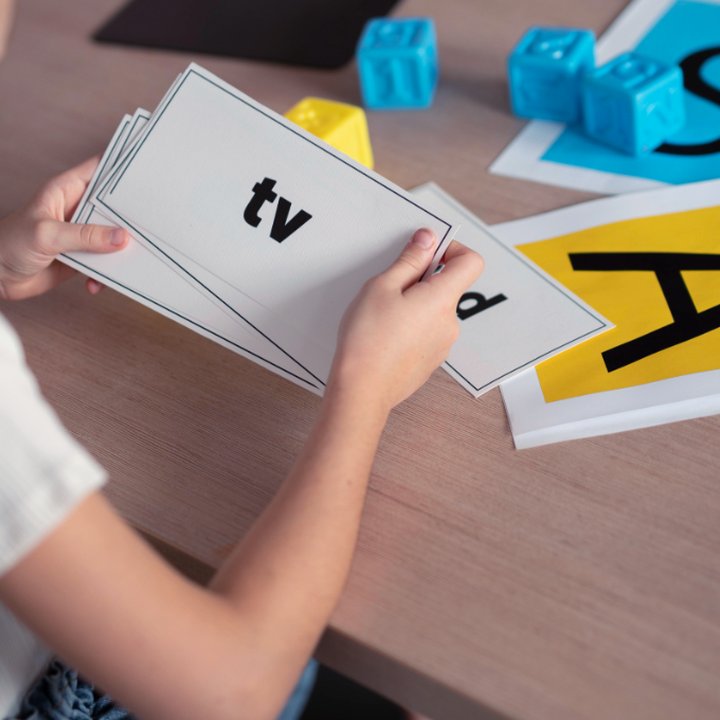Hired as Tech Support but Not So Good at English?
In today's fast-paced world of technology, effective communication is paramount, especially in the IT industry where technical support plays a crucial role.
Oct. 17, 2023

Learning English is not just about acquiring a language; it's a key that unlocks countless opportunities in our interconnected world.
Language acquisition is like building a house. You start with a strong foundation, and for kids learning English, this foundation is constructed through two crucial elements: Vocabulary and Grammar.
1. The Importance of Vocabulary Building
A child's vocabulary is like a treasure chest; it holds the keys to expressing thoughts and understanding the world. Children who have a rich vocabulary find it easier to communicate, understand stories, and excel in school. Vocabulary is not just about words; it's about ideas, concepts, and the ability to explore the world through language.
2. Tips for Building Vocabulary
- Read Together: Imagine the joy of sitting with your child, turning the pages of English books, and discovering new words together. Reading not only introduces them to new words but also allows them to understand these words in context.
- Flashcards: Picture your child eagerly flipping through colorful flashcards featuring English words and their corresponding pictures. These visual aids make learning engaging and memorable.
- Word Games: Think of evenings filled with laughter as you play word games like Scrabble or crosswords together. These games transform vocabulary building into a fun family activity.
1. Explanation of Basic Grammar Concepts
Grammar is like the scaffolding that holds the structure of a language together. Just as a builder needs a solid framework to create a beautiful house, a child needs to understand grammar to construct meaningful sentences. Grammar rules, like the beams and columns of a house, ensure that sentences are structured correctly.

2. Tips for Mastering Grammar
- Storytelling: Think of explaining grammar through stories. Picture your child's face lighting up as they immerse themselves in the adventures of language. These stories make grammar concepts relatable and enjoyable.
- Interactive Games: Imagine your child enthusiastically participating in grammar-related games like Mad Libs. These games are like magic potions, turning the sometimes-dry subject of grammar into an exciting adventure.
1. The Importance of Developing Listening and Speaking Skills
Listening and speaking are the cornerstones of effective communication. Just as a painter needs brushes to create a masterpiece, children need the skills of listening and speaking to express their thoughts and emotions. Listening allows them to absorb the language, and speaking lets them convey their ideas.
2. Tips for Improving Listening and Speaking Skills
- English Storytime: Envision your child engaged in regular English storytime sessions. It's like planting seeds of pronunciation, intonation, and storytelling in their fertile minds.
- Role-Play: Think of your child's face lighting up as they playfully engage in role-play activities. These activities are like mirrors reflecting real-life conversations in English.
1. The Importance of Developing Reading and Writing Skills
Reading and writing are like two sides of the same coin, enhancing comprehension and expression. Reading allows children to soak in knowledge, while writing lets them pour out their thoughts. These skills work together, just as gears in a well-oiled machine, ensuring the smooth flow of language.
2. Tips for Improving Reading and Writing Skills
- Reading Challenge: Imagine your child setting sail on a reading adventure. Each book they read is a voyage to new worlds and experiences. Setting a reading challenge is like providing them with a treasure map, inspiring them to explore uncharted literary territories.
- Journaling: Picture your child's journey into the world of writing. It begins with simple journal entries and evolves into more complex writing projects. Journaling is like a canvas where they paint their thoughts, one brushstroke at a time.

1. Ideas for Incorporating English into Daily Life
Your home can be a vibrant language school without walls. It's like transforming your living space into a linguistic playground. Label items around the house in English, creating a language-rich environment. Your child will wander through a world of words: "table," "chair," "bookshelf."
2. Tips for Parents to Support Their Child's Learning
- Be Engaged: Imagine the excitement in your child's eyes when you participate in language-related activities with them. You become their partner on this language-learning adventure.
- Encourage Reading: Provide your child access to a variety of English books, allowing them to explore a multitude of stories, from adventures in far-off lands to mysteries unfolding in their own imaginations.
1. Explanation of the Benefits of Practicing with Native Speakers
Native speakers are like living textbooks, filled with cultural nuances, idioms, and authentic accents. Engaging with native speakers offers your child an opportunity to explore the depths of the language. They'll learn how words come to life, their meanings shifting with intonation and expression.
2. Tips for Finding Native Speakers to Practice With
- Language Exchange Programs: Imagine your child forming connections with native English speakers in your community. They share games, laughter, and stories, all while immersed in the language.
- Online Platforms: Envision your child's world expanding into the digital realm. Through online platforms, they can meet and converse with native English-speaking peers, all from the comfort of your home.
The journey to English proficiency is an ongoing adventure, filled with exciting discoveries and enriching experiences. Encourage your children to start this journey with enthusiasm and curiosity.
As a parent, your support is the most vital tool in your child's language-learning arsenal. Make learning fun and exciting, and watch your child flourish as a confident English speaker.